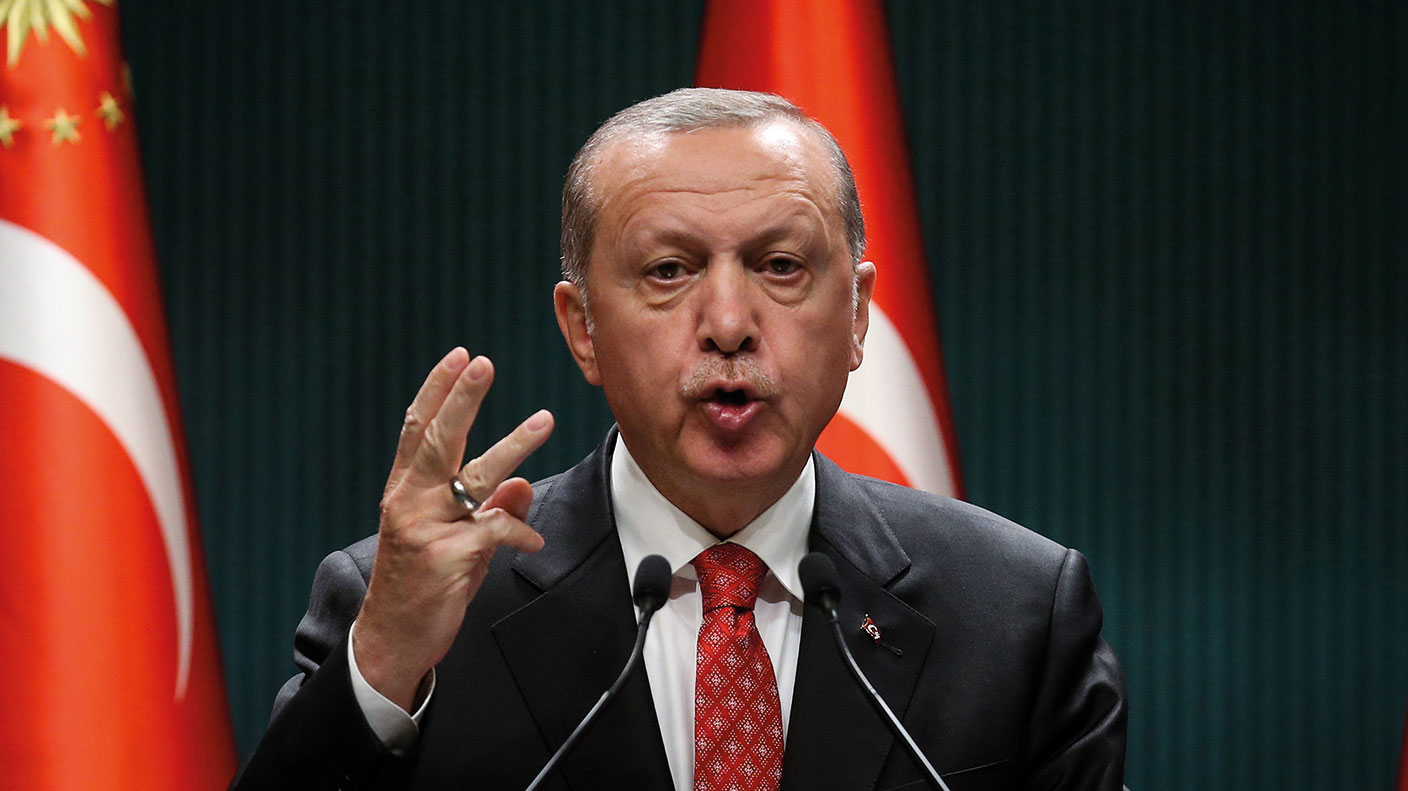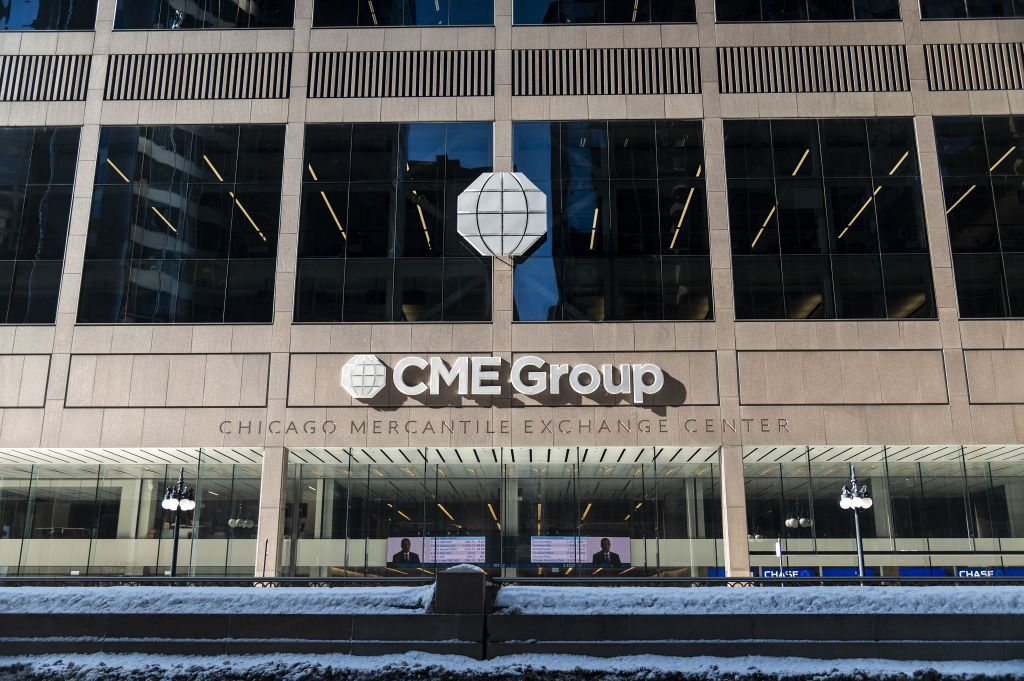Erdogan’s risky bluff to save the Turkish lira
Turkey's autocratic president has said the government will guarantee lira deposits against further deterioration in the exchange rate. Few people are convinced by the idea.

Get the latest financial news, insights and expert analysis from our award-winning MoneyWeek team, to help you understand what really matters when it comes to your finances.
You are now subscribed
Your newsletter sign-up was successful
Want to add more newsletters?
Turkey has found a “sticking plaster” for its currency woes, says Lex in the Financial Times. The country is facing a mounting currency crisis and locals have responded by shifting their savings into other currencies and gold (nearly two-thirds of Turkish bank deposits are held in foreign currencies). So Recep Tayyip Erdogan, the country’s autocratic president, last month announced the government will guarantee lira deposits against further deterioration in the exchange rate. The scheme, designed to encourage Turks to keep their savings in lira, seems to have worked so far – the currency has since rallied 26%. Yet few international investors are convinced by the idea.
The guarantee means that if the lira lost 30% against the dollar in a year, then a saver with an account paying the 14% base rate would be topped up with the 16% difference by the Turkish state, says The Economist. The move may have prevented a bank run, but in the long-term it only worsens the economic danger. If the lira falls again then the deposit scheme would leave the Turkish treasury “on the hook for hundreds of billions of lira”. A currency crisis could quickly turn into a fiscal headache.
Turkey’s last lira crisis in 2018 was driven by foreign investors fleeing the country. This time, the problem has been domestic capital flight, says Jon Sindreu in The Wall Street Journal. Inflation is soaring and interest rates should rise, yet Erdogan has forced the central bank to cut four times instead. The deposit insurance scheme amounts to a “backdoor” hike, but instead of raising costs on borrowers it is Turkey’s taxpayers who are now “footing the bill”. If the fiscal costs prove unbearable then the banking system, which holds “about a third of the government’s debt”, could be in trouble. “Turkey’s plan to save the lira is a risky bluff”.
Try 6 free issues of MoneyWeek today
Get unparalleled financial insight, analysis and expert opinion you can profit from.

Sign up to Money Morning
Don't miss the latest investment and personal finances news, market analysis, plus money-saving tips with our free twice-daily newsletter
Don't miss the latest investment and personal finances news, market analysis, plus money-saving tips with our free twice-daily newsletter
Get the latest financial news, insights and expert analysis from our award-winning MoneyWeek team, to help you understand what really matters when it comes to your finances.
Alex is an investment writer who has been contributing to MoneyWeek since 2015. He has been the magazine’s markets editor since 2019.
Alex has a passion for demystifying the often arcane world of finance for a general readership. While financial media tends to focus compulsively on the latest trend, the best opportunities can lie forgotten elsewhere.
He is especially interested in European equities – where his fluent French helps him to cover the continent’s largest bourse – and emerging markets, where his experience living in Beijing, and conversational Chinese, prove useful.
Hailing from Leeds, he studied Philosophy, Politics and Economics at the University of Oxford. He also holds a Master of Public Health from the University of Manchester.
-
 Pensioners ‘running down larger pots’ to avoid inheritance tax as rule change looms
Pensioners ‘running down larger pots’ to avoid inheritance tax as rule change loomsChanges to inheritance tax (IHT) rules for unused pension pots from April 2027 could trigger an ‘exodus of large defined contribution pension pots’, as retirees spend their savings rather than leave their loved ones with an IHT bill.
-
 Why do experts think emerging markets will outperform?
Why do experts think emerging markets will outperform?Emerging markets were one of the top-performing themes of 2025, but they could have further to run as global investors diversify
-
 Should you invest in energy provider SSE?
Should you invest in energy provider SSE?Energy provider SSE is going for growth and looks reasonably valued. Should you invest?
-
 Should you sell your Affirm stock?
Should you sell your Affirm stock?Affirm, a buy-now-pay-later lender, is vulnerable to a downturn. Investors are losing their enthusiasm, says Matthew Partridge
-
 Profit from pest control with Rentokil Initial
Profit from pest control with Rentokil InitialRentokil Initial is set for global expansion and offers strong sales growth
-
 In the money: how my trading tips fared in 2025
In the money: how my trading tips fared in 2025The success of the open positions offset losses on closed ones, says Matthew Partridge
-
 Coreweave is on borrowed time
Coreweave is on borrowed timeAI infrastructure firm Coreweave is heading for trouble and is absurdly pricey, says Matthew Partridge
-
 Circle sets a new gold standard for cryptocurrencies
Circle sets a new gold standard for cryptocurrenciesCryptocurrencies have existed in a kind of financial Wild West. No longer – they are entering the mainstream, and US-listed Circle is ideally placed to benefit
-
 Profit from other investors’ trades with CME Group
Profit from other investors’ trades with CME GroupCME Group is one of the world’s largest exchanges, which gives it a significant competitive advantage
-
 Investors need to get ready for an age of uncertainty and upheaval
Investors need to get ready for an age of uncertainty and upheavalTectonic geopolitical and economic shifts are underway. Investors need to consider a range of tools when positioning portfolios to accommodate these changes